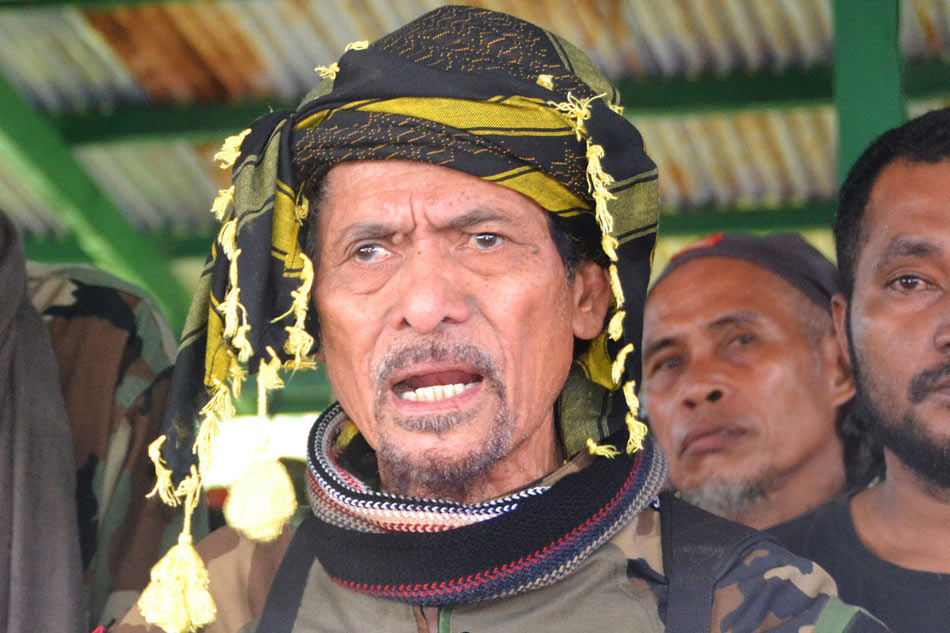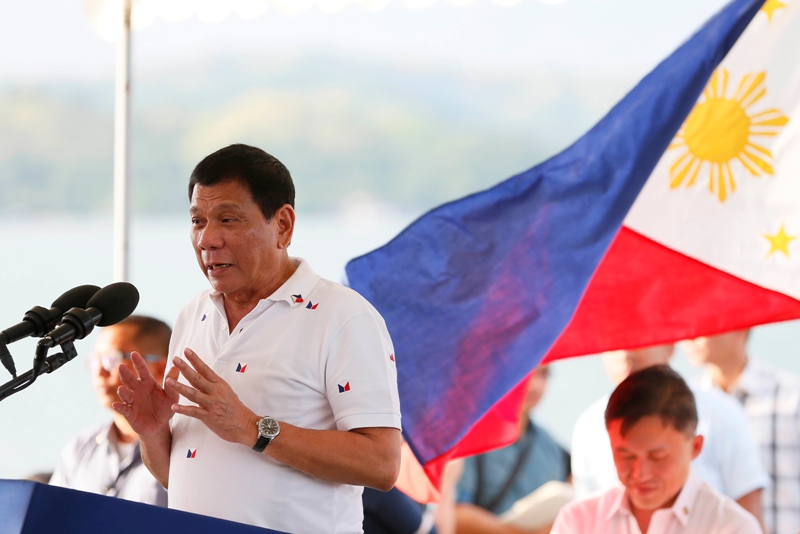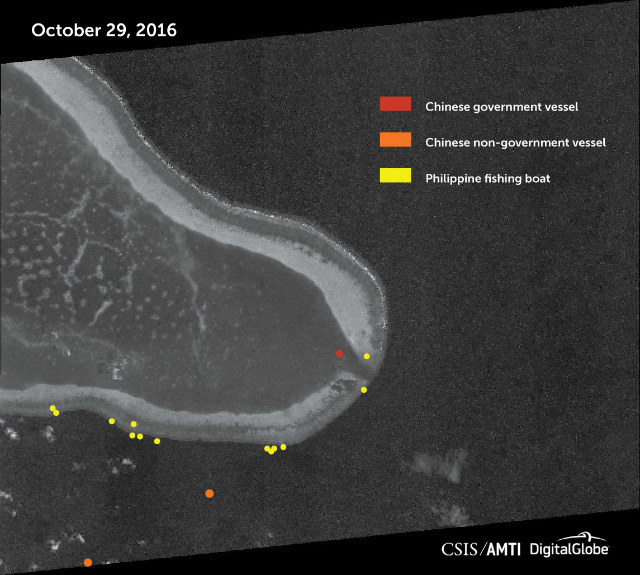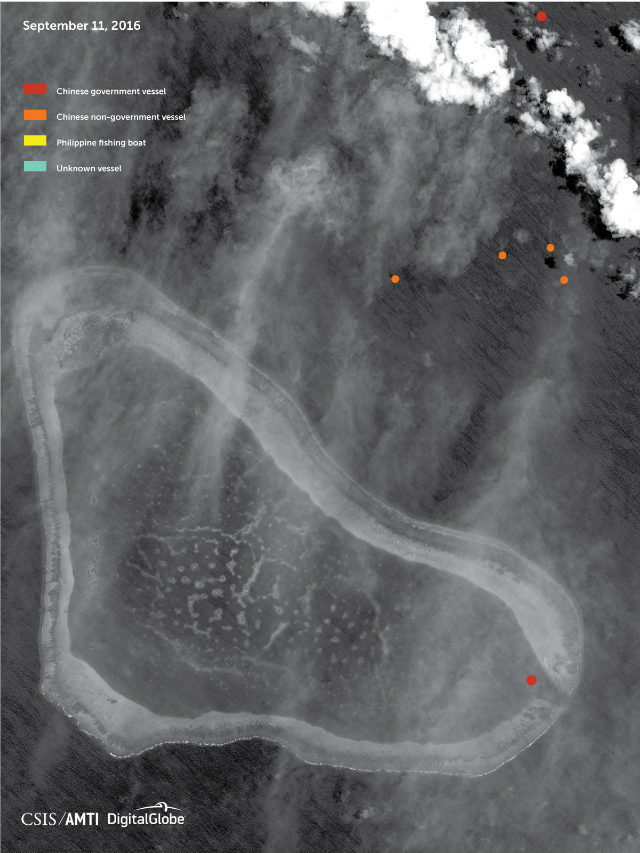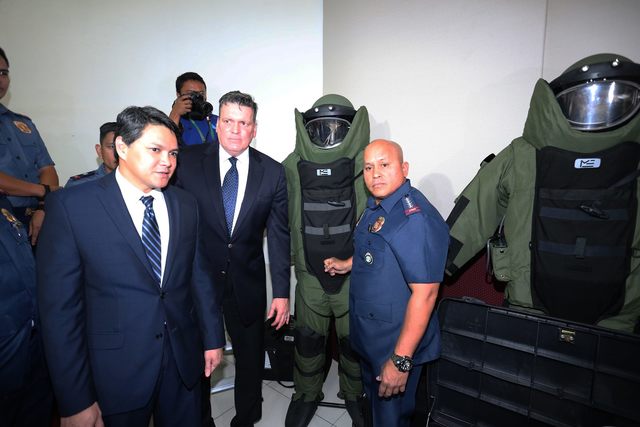From the Eurasia Review (Nov 3):
Malaysia’s Navy Deal With China: Meeting A Complex Security Challenge – Analysis (By Koh Swee Lean Collin, RSIS)
Beyond geopolitics, the latest revelation of Malaysia’s purchase of Littoral Mission Ships from China needs to be viewed in perspective.
 Malaysia's Najib Razak. Photo by Malaysian government, Wikipedia Commons.
Malaysia's Najib Razak. Photo by Malaysian government, Wikipedia Commons.
Prime Minister Najib Razak’s current visit to Beijing has been underscored by what the Malaysian leader described as a “landmark decision” – a two-year defence contract to buy and build four Littoral Mission Ships (LMS) from China. This deal might have come across as surprising to many who have long known that Malaysia has customarily operated Western naval equipment. As Najib told the Malaysian media in Beijing: “I call this a landmark decision because before this, we had not bought such vessels from China.”
Such a revelation sparked much speculation about Kuala Lumpur’s further geopolitical shift towards Beijing and consequent ramifications for regional security, especially the United States’ Asia rebalancing strategy. But geopolitics aside, this deal, if it is formally inked and implemented, should not have come across as any surprise. In fact, last year the Royal Malaysian Navy (RMN) reportedly also mulled Chinese replacements for the aging Italian-made missiles on board its Laksamana-class corvettes.
Persistent Shortfalls
Notwithstanding Malaysia’s sprawling maritime zone that spans from its Indian Ocean-facing peninsular western seaboard, all the way across the South China Sea to the Celebes and Sulu seas off Borneo, the country has long been afflicted by budget and equipment shortfalls.
In the face of such immutable geographical circumstances, what has become more pertinent in recent years has been the increasingly complex maritime security challenges Malaysia is confronted with. Eastern Sabah remains a key focal point – a problem that stemmed from the 2013 infiltration by Sulu militants into Lahad Datu, and most lately, the spate of “kidnap-for-ransom” incidents in the Sulu Sea, involving attacks on Malaysian vessels.
In this regard, the Eastern Sabah Security Command (ESSCOM) has consumed a huge chunk of funding – over RM1.1 billion (about US$263 million) at least had been allocated under the previous state budgets. These do not simply go to purchase of physical surveillance and patrol assets, but also land infrastructure construction, including the ESSCOM Fusion Centre. More recently, with the rising threat from the self-proclaimed Islamic State, Kuala Lumpur also raised its maritime security alert posture along the coasts of peninsular Malaysia.
Not a Strange Purchase
Overall, the Malaysian Armed Forces is no stranger to purchasing equipment from sources outside its traditional Western circles, including Poland and Russia since the 1990s. An interesting example is the Sukhoi Su-30MKM Flanker, essentially a hybrid multi-role fighter jet combining a Russian airframe and retaining some of its baseline native systems with a mixture of South African and Western components.
Viewing today’s cut-throat competition in the global arms market, it has become an imperative for suppliers to meet customers’ demand for “mix and match”, customising platforms according to their needs. This way, the customer is not necessarily beholden to one source.
Of course, this can lead to various problems; for example, it becomes more complicated to integrate systems from different sources together on a common platform. There may also be consequences for after-sales life cycle support, especially concerning logistics.
Neighbouring Thailand is a proximate example to look at this reported LMS purchase from China. Back in the early 1990s, as part of its major naval buildup Thailand acquired several warships from China, including four Chao Phraya/Kraburi-class frigates which were essentially Jianghu-III/IV outfitted with all key Chinese systems. The Royal Thai Navy (RTN) was reportedly dissatisfied with these ships, citing poor-quality systems and frequent breakdowns.
Subsequent buys changed the equation. A pair of Naresuan-class frigates was purchased in the mid-1990s, again based on a modified Jianghu hull but outfitted with mainly Western systems and only some Chinese components. These ships worked fine, and remained the RTN’s principal surface combatant at least until the new South Korean-built DW3000H frigate enters service.
Bangkok appears satisfied – after 2007 it commissioned a pair of Pattani-class offshore patrol vessels, based on Chinese hull but outfitted with Western systems. The lead ship, HTMS Pattani was deployed to the Gulf of Aden in 2010 to join in counter-piracy operations.
Challenging Fleet Rationalisation?
The Malaysian LMS fleet is thus foreseeably not going be a “thorough-bred” Chinese ship with all Chinese systems, but likely a hybrid platform based on a Chinese hull combined with various Western and Chinese components.
In the current climate of austerity – the defence budget allocated for 2017 is US$3.6 billion, a 13% drop from about $4.1 billion the previous year. In the face of pressing operational and technical requirements to address capacity shortfalls to cope with a myriad of complex, evolving maritime security challenges across a vast domain, this “mix and match” approach may constitute a means to diversify supply sources.
However, for the RMN which has been using Western systems, it may take time to familiarise with and assimilate the new platform and its systems in service. Logistics also potentially constitute a long-term challenge to the 15-to-5 Armada Transformation Programme proposed by the navy’s leadership early this year.
The plan envisages reducing the current 15 classes of vessels, averaging 30 years of age and sourced from seven different countries, to five broad categories: 1) Second-Generation Patrol Vessel-Littoral Combat Ship; 2) New-Generation Patrol Vessel (Kedah-class); 3) LMS; 4) Multi-Role Support Ship and 5) Submarine (modified Scorpene; Tun Abdul Razak-class).
Balancing Priorities
For now, what take precedence are addressing the need for block replacement of ageing systems and maintaining at least a critical mass of assets and thus operational readiness in peacetime. Kuala Lumpur will continue to be fixated on eastern Sabah and generally the rising terror threat posed by IS.
This means possibly lesser funds available in future for “big-ticket” purchases but instead, simpler, less expensive yet more useful patrol vessels (especially for the Malaysian Maritime Enforcement Agency).
The Malaysian example is not the first, and likely not the last, where it comes to the tough act of balancing competing economic, political and operational priorities in the process of building maritime forces capacity – especially in the era where new, lower-tier players have emerged amongst the global arms suppliers.
Purchasing arms from China may not necessarily reflect just Malaysia’s geopolitical choice, but more pertinent concerns over day-to-day upkeep of an effective yet cost-conscious force capable of tackling immediate security challenges at sea.
[Koh Swee Lean Collin is a Research Fellow with the Maritime Security Programme at the Institute of Defence and Strategic Studies, a constituent unit of the S. Rajaratnam School of International Studies (RSIS), Nanyang Technological University, Singapore.]
[RSIS Commentaries are intended to provide timely and, where appropriate, policy relevant background and analysis of contemporary developments. The views of the author/s are their own and do not represent the official position of the S.Rajaratnam School of International Studies (RSIS), NTU, which produces the Commentaries.]
http://www.eurasiareview.com/03112016-malaysias-navy-deal-with-china-meeting-a-complex-security-challenge-analysis/
